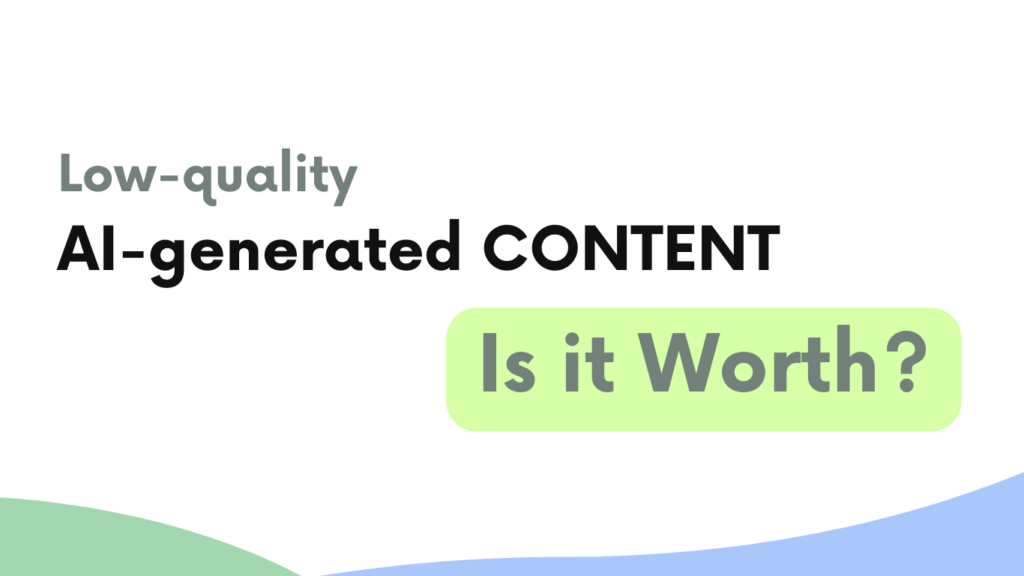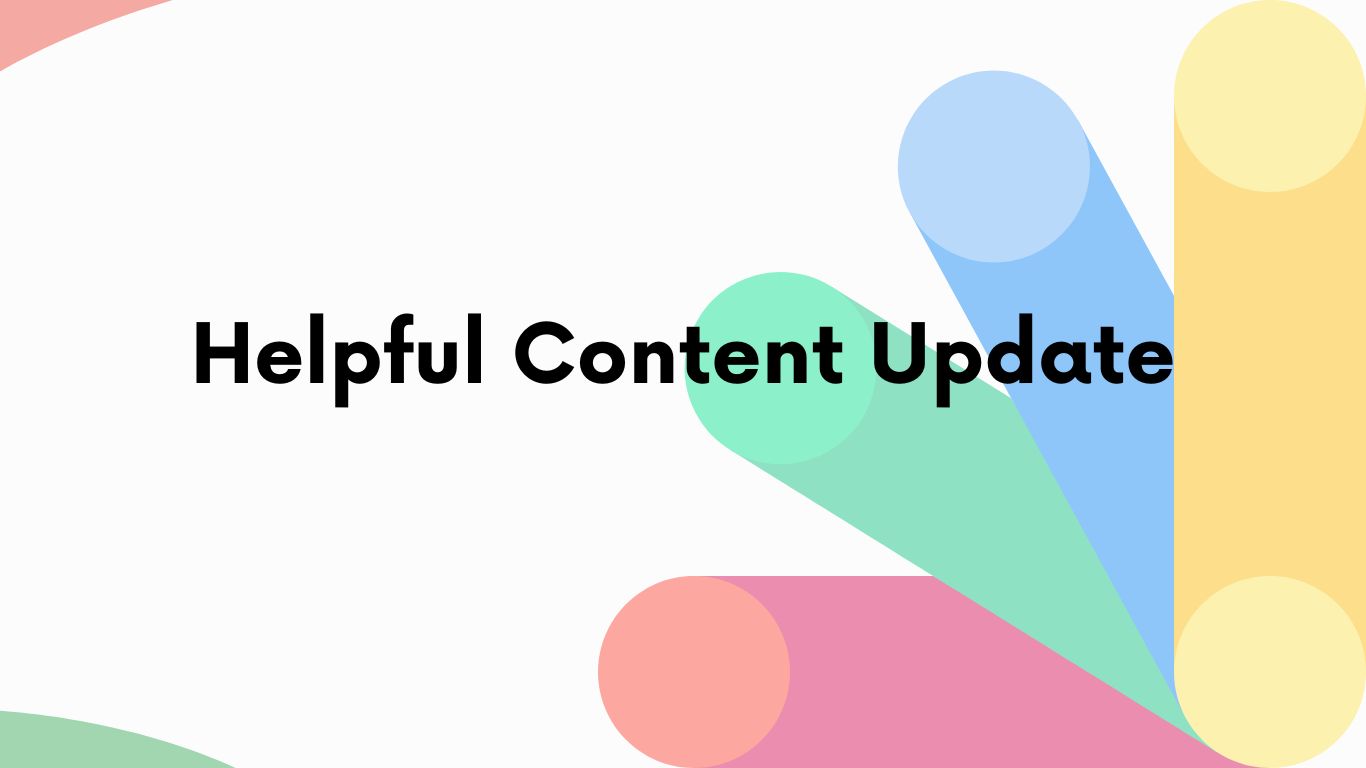Whether you are a marketer or a webmaster, you need to know what Google HCU means and how it affects your website and SEO efforts.
Ranking high on Google search is of utmost importance for any website. But as we all know, it’s easier said than done. Unlike the initial years of Google Search, ranking your website pages is no longer limited to just writing content and stuffing keywords.
Google Search evolves! The algorithm Google uses to rank web pages is undergoing constant updates. Keeping up with these updates is crucial to maintaining and achieving high rankings in search results.
In September 2023, Google released the third HCU update. The update has gained significant attention as it affected several websites. The main agenda of HCU updates is to prioritize high-quality content that is helpful to users.
This blog discusses how HCU works and its effect on websites. So, let’s get started with what the Google Search algorithm is!
What is the Google Search Algorithm?
The Google Search Algorithm is a set of rules that determines the rankings of a web page in search results. This algorithm is highly complex and considers several parameters, such as content quality, user experience, page speed, keywords, and backlinks.
Experts at Google periodically roll out new updates to refine the algorithm. The intention is to produce better search results. There are different types of algorithm updates rolled over the years, including core updates, helpful content updates, product review updates, and page experience updates.
What is HCU?
As a part of Google’s effort to improve its search algorithm, they released the HCU or helpful content update to prioritize web pages with the most relevant content. This update focuses on identifying content that provides users with high-quality, reliable information.
With HCU, Google encourages creators to build original and insightful content and engage better with the users.
Understanding the Helpful Content Update (HCU)
Introduced by Google for the first time in August 2022, the primary goal of Helpful Content Update is to promote content that offers the most value to users. Additionally, it brings down the excessive SEO-centric tactics used by marketers who prioritize search engine ranking over user experience.
Switching the focus to user experience, HCU allows Google to rank websites that offer relevant and helpful content. It also lowers the visibility of content created specifically for SEO boost with minimal relevance to users’ queries.
September 2023 HCU Update
Considered the most powerful update, the September 2023 HCU brings several algorithm changes to rank websites with high-quality and relevant content. It also highlights the changes in Google’s stance towards machine-generated – AI – content.
Machine-generated content garnered significant concerns about its reliability, which Google addressed with its HCU update.

While Google is not fully against machine-generated content, it emphasizes that such content should be factually correct and deliver valuable information to users. Low-quality AI-generated content that only aims to achieve higher search rankings is undesirable.
Another important change is related to third-party content. Websites that host third-party content have to become more cautious about the content’s relevancy, authenticity, and quality. Whether it is the primary domain or a subdomain, websites need to ensure that the third-party content is related to the website’s overall purpose.
Google also recommends that website owners should not index third-party content that is not related to their site’s purpose.
Rollout Date and Initial Impact
The third HCU update rollout started on 14 September 2023 and was completed on 28 September, taking a total rollout time of almost 2 weeks. The gradual implementation allowed the Google search engine to evaluate and index websites according to the new guidelines.
Soon after the rollout, websites witnessed different levels of impact on their SEO performance and visibility. The rankings of websites fluctuated and so did the traffic patterns. In general, websites overly optimized exclusively for SEO saw a dip in traffic while websites with high-quality content experienced improved rankings and increased traffic.
What is the Impact of the Update on Different Types of Content?
The September HCU update affected websites with different content categories. To give you a good idea of the update’s impact, we’ll discuss the initial impact of HCU across three types of websites: educational, shopping, and entertainment.
- Educational
Websites offering genuine, well-researched educational content got a boost in their visibility. Whereas, sites with outdated and irrelevant content witnessed ranking drops.
- Shopping
The HCU update supported e-commerce websites with detailed product descriptions and authentic customer reviews. On the other hand, fake customer reviews, duplicate content, and low-quality product descriptions negatively impacted e-commerce sites.
- Entertainment
Entertainment websites with engaging and original reviews and stories got a boost. Also, high-quality multimedia helped in increasing the credibility of a website. Conversely, clickbait, low-quality, and copied content caused a negative impact.
How to Refine Your Content Strategy?
Whether your website has been affected or you simply want to ensure your website complies with the new guidelines introduced in the September HCU update, you must modify your content strategy.
Merely producing content and optimizing it for SEO is not enough. It’s important to reframe your content strategy and prioritize the generation of user-centric, helpful content.
Here are some useful tips for creating an effective content strategy that accumulates the changes brought by Google’s helpful content update:
- Make sure the content on your website is up-to-date. Replace outdated information with the latest info and update statistics regularly.
- Optimize the content for users and their search intent. Avoid creating content with only the aim of targeting keywords.
- Write in-depth articles that cover all the important aspects of a topic. This makes sure that users get the essential information they are searching for.
- Utilize high-quality images, videos, and infographics to make your content easy to remember and provide a great user experience.
- Leverage surveys and quizzes to make your content more interactive and collect user feedback to improve their experience.
- Encourage users to leave comments and participate in discussions.
- Always rely on credible sources to get information and link to reputable websites to back up the statistics and facts you have added to your content.
The Helpful Content Update is Google’s effort to rank websites with genuine content higher in SERPs. Till May 2024, there have been three HCU updates released by Google. The third HCU update, released in September 2023, caused significant shifts in the rankings and traffic of several websites.
The September HCU update particularly focuses on the quality of machine-generated content and third-party content hosted on websites. While the update doesn’t prevent website owners from using machine-generated content, it prioritizes helpful content that provides relevant information to users.
With the HCU updates affecting the visibility of several websites on the Google search engine, website owners must modify their content strategy. It will help their websites comply with the guidelines introduced by the HCU updates to the Google Search Algorithm.
We hope this blog helped you develop a good understanding of the Google Helpful Content Update and how it promotes the use of genuine and relevant content on websites.
Q: What prompted Google to release this content update?
A: Google released the Helpful Content Update to address the proliferation of low-quality content in search results, aiming to enhance user experience by prioritizing websites offering valuable and insightful content.
Q: What specific changes were made in the helpful content update?
A: The update introduced a greater emphasis on content quality, relevance, and the inclusion of guidelines for AI-generated content and third-party content hosting practices.
Q: How are website owners and content creators responding to this update?
A: By prioritizing the creation of informative, high-quality content tailored to their audience’s needs, and optimizing their sites for a better mobile experience.
Q: How does this update impact search engine optimization (SEO) strategies?
A: SEO strategies now need to focus more on content quality and relevance to user queries, with a shift away from practices like keyword stuffing towards more valuable content offerings.
